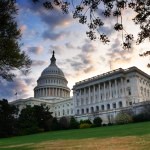What is a bank anyway?
According to a helpful little essay on banks for students at (Think Quest) a bank is a financial organization in which citizens deposit their money. A bank is a business. According to the aforementioned essay, "each bank tries to make their bank look better than all of the other banks by offering services that some other banks might not have." That is to say, banks compete in a market. This is true, theoretically at least, and also accurate to some extent in certainty, although plentiful banking laws seriously alter the market and the competition. To put it simply a bank is a business that competes in a market.
So banks are businesses, but then suddenly, there is another so-called bank that has a collection of powers that business banks do not have. This bank is actually a government bureau. Its fiat money is made into lawful tender by the government. The government states that it stands behind this money. This bank has authority to control and organize the normal banks into a cartel.
A central bank, reserve bank or monetary authority is a public institution that typically issues the currency, regulates the money supply and manages the interest rates in a country. Central banks frequently also oversee the commercial banking system of their individual countries. In contrast to a commercial bank, a central bank holds a monopoly on printing the national currency, which typically serves as the nation's legal tender.
A central bank is a government department. It is a government bureau. It is the government's fiat money bureau. The central bank is the government's money-printing machinery or money-printing organization or money-printing bureau or money-printing agency. As contrasted with monies produced in a free market, the Fed's money is state-produced money. In the sense of comparing the Fed's money to free-market money, it is counterfeit. It is held up by the force of government law and power. It is imposed on the public.
An accurate term for the Fed might be the ‘Fiat Money Administration.’ Perhaps the term "Monetary Authority" would be more accurate. It would be more accurate if the latter were the official name. In the U.S. Constitution, at least, it is clear that there is no power to create a Monetary Authority, and if there were such a power, it could not possibly be delegated in such a way as to make that Monetary Authority independent.
The central bank is not a real bank. Everything about it is permeated with government power. At the heart of the financial and monetary system of a nation that is supposed to be an exemplar of free markets is a government money-bureau.
There are different kinds of banks
There are national banks, state banks and central banks. The Federal Reserve Bank is the United States England
Central banks are the institutionalized spinners of bogus premises. They are also pirates. They steal from the public purchasing power while claiming to guard the public from the negative effects of market swings.
In the past, monarchical governments simply stole from their subjects via seignior age. When they needed more money from their subjects, they'd call in coins, clip them and send them back out with the insistence -- on pain of death -- that everyone pretend that the clipped coins hadn't been clipped.
In the modern world, the central bank does the same coin-clipping function for its government. The method is a bit more long-winded, perhaps to make it look somehow benign and not like outright theft. These days, everyone seems to believe currency debasement is a good thing.
Currency degradation is hypothetically a handy tool for extra-market forces (i.e., political ones) to smooth out markets. Recently created legal tender is used to buy government debt. This lowers interest rates so that borrowing money outlay less. Newly created money also expediently lowers the value of obtainable money, and discourages simple savings and encourages people to take greater risks with their money, just to outpace the rate at which that money's purchasing power is being destroyed.
Critics of central banks would point out that simple savings that form the basis for sustainable economic growth. Consumption-based debt, on the other hand, isn't so reliable. Debt is really just consumption of future wealth, and eventually the future will be calling.
Money printing is one of the last efforts of a failing economy. One of the many signs of a crumbling empire, The rest of us, however, do have futures to worry about, financial futures that no longer seem so certain because of government and central bank interference in the economy. The only cure is to take your lumps now and begin again. Call "do over" and be done with it, a process that central banks and governments would really rather avoid. What we call central banks are not banks at all.
And what exactly is causing our economic problems? In short: inflation. Both the creation of new money unbacked by productive activity -- literally, conjured up from nothing at the whim of a central banker -- and the artificially low cost of borrowing to expand the amount of debt...again, thanks to central bankers buying government debt with the money they create in order to shove interest rates down.
This is where Ron Paul is different.
He recognized the perils of closing the gold window in 1971. He knew that the general public no longer understood the risks of fiat currencies, and he's been trying to inform the public ever since he took office.
Then in 1981, as a part of the Gold Commission, he penned what we now call Ron Paul's "Lost" Gold Bible. We say "lost" because the people who benefited from the Fed's existence had no interest in publishing Dr. Paul's findings, and quickly ridiculed and buried it. Then it was business as usual for bankers and politicians for the next 30 years.
In a nutshell Central Banks
Will Bankrupt America
Will Bankrupt America


Comments